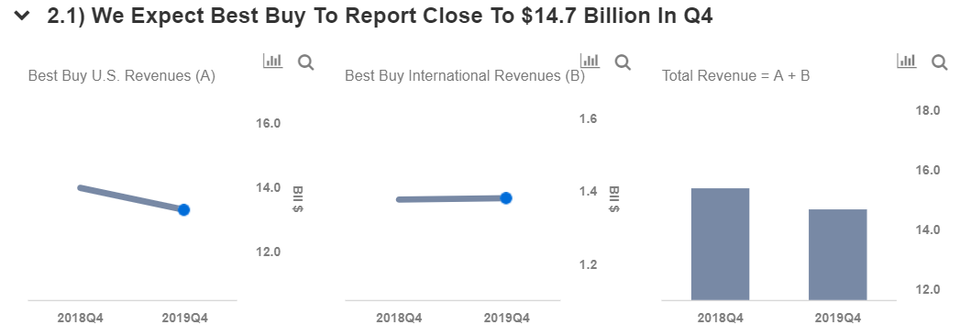How to Use Artificial Intelligence in Your Investing in 2024 Leave a comment

The experience of finance suggests that AI will transform some industries (sometimes very quickly) and that it will especially benefit larger players. Those making their own investment decisions should determine their investing strategy to understand the types of stocks they want similarities and differences between accounting and bookkeeping in their portfolio. Investors could also utilize suggested models from robo-advisors, often available for free, to help determine the mix of asset classes for their portfolio. If there’s one technology paying dividends for the financial sector, it’s artificial intelligence.
Promoted Content
Early automation was rule-based, meaning as a transaction occurred or input was entered, it could be subject to a series of rules for handling. While these systems automate financial processes, they require significant manual maintenance, are slow to update, and lack the agility of today’s AI-based automation. Unlike rule-based automation, AI can handle more complex scenarios, including the complete automation of mundane, manual processes. For a preview, look to the finance industry which has been incorporating data and algorithms for a long time, and which is always a canary in the coal mine for new technology.
Regulatory Compliance
AI and blockchain are both used across nearly all industries — but they work especially well together. AI’s ability to rapidly and comprehensively read and correlate data combined with blockchain’s digital recording capabilities allows for more transparency and enhanced security in finance. AI models executed on a blockchain can be used to https://www.kelleysbookkeeping.com/berkshire-hathaway-annual-interim-reports/ execute payments or stock trades, resolve disputes or organize large datasets. Alpaca uses proprietary deep learning technology and high-speed data storage to support its yield farming platform. Let’s take a look at the areas where artificial intelligence in finance is gaining momentum and highlight the companies that are leading the way.
AI-related questions to ask when choosing an ERP vendor

The company offers simulation solutions for risk management as well as environmental, social and governance settings. Simudyne’s secure simulation software uses agent-based modeling to provide a library of code for frequently used and specialized functions. Enova uses AI and machine learning in its lending platform to provide advanced financial analytics and credit assessment. The company aims to serve non-prime consumers and small businesses and help solve real-life problems, like emergency costs and bank loans for small businesses, without putting either the lender or recipient in an unmanageable situation. Artificial intelligence (AI) technologies are rapidly transforming today’s business models, and the emerging Generative AI and advanced applications are presenting new opportunities and possibilities for AI in finance and accounting.
- TQ Tezos aims to ensure that organizations have the tools they need to bring ideas to life across industries like fintech, healthcare and more.
- Banks can create a more personalized experience for customers through customized products and services, which can lead to increased customer satisfaction and retention.
- Artificial intelligence (AI) and machine learning in finance encompasses everything from chatbot assistants to fraud detection and task automation.
- The traditional loan approval process has many grey areas where the assessment is reliant on human experience.
What is artificial intelligence (AI)?
AIMultiple informs hundreds of thousands of businesses (as per Similarweb) including 60% of Fortune 500 every month. Using AI to unlock the potential in the finance sector offers limitless possibilities. It’s a journey that financial chiefs need to consider and open the door to more innovations. For example, the ClickUp Accounting Template is designed to help manage your invoices, sales records, income, and predicted revenue. Keep up with accounts receivable and accounts payable (AR/AP) and use resource tracking to improve overall financial performance. Prebuilt AI solutions enable you to streamline your implementation with a ready-to-go solution for more common business problems.
Smart AI can improve the efficiency of financial services, support growth, and reduce costs. The efficiency is achieved through streamlining credit card and loan approval processes, using RPA for running repetitive tasks, detecting cybersecurity attacks, and more. This guide covered the most prominent use cases and applications for AI in finance. We covered investment research, fraud detection and anti-money laundering, customer-facing process automation, personalized assistants/chatbots, personalized portfolio analysis, exposure modeling, portfolio valuation, and risk modeling. Credit scoring powered by machine learning has proven invaluable for the finance industry, enabling rapid and accurate assessments with reduced bias.

While traditional banking institutions are interested in incorporating new technologies, fintechs are adopting this technology more quickly as they try to catch up with larger institutions. To stay ahead of the game, larger financial institutions are investing heavily, with 77% planning to increase their budgets over the next three years, according to Scale’s 2023 AI Readiness report. The finance department has taken the lead in leveraging machine learning and artificial intelligence to deliver real-time insights, inform decision-making, and drive efficiency across the enterprise.
The true challenge will be for finance chiefs to identify where automation could transform their organizations. Further, they should check whether the opportunities to automate are in areas that consume valuable resources and slow down operations. Finally, CFOs must remember that the success of niche technologies will depend on the capabilities of the people using them.
These tools include everything from intelligent automation to machine learning, natural language processing, and Generative AI, and they present new opportunities, possible benefits, and many emerging risks for finance and accounting. While large language models like OpenAI’s GPT-4 and Anthropic’s Claude work well out of the box, many financial institutions find that they need to customize models to get them to provide the best responses and align with their policies. Techniques like fine-tuning models on proprietary data, prompt engineering, and retrieval help https://www.wave-accounting.net/ elevate a base model from acceptable responses to a superior customer experience. Many financial institutions leverage their vast data to offer AI-enabled personalized service and guidance. Institutions can provide customers with assistant-like features, including categorizing expenditures, suggesting savings goals and strategies, and providing notice about upcoming transfers. AI can offer personalized financial advice and guidance based on individual customer profiles and preferences and assist users with budgeting, financial planning, and investment decisions.
Socure is used by institutions like Capital One, Chime and Wells Fargo, according to its website. The record companies’ urgency in resolving legal uncertainty around the use of copyrighted works to train AI systems may lie in the commercialization of AI-generated content, which is more readily seen in music than in other industries. Spotify allows users, for example, to upload AI-generated music, a policy which creators have said will flood the service with cheap content that they say will cheapen the value of their work.
If you want to incorporate the use of AI into your investing or trading, you may consider taking the steps that follow. Learn why digital transformation means adopting digital-first customer, business partner and employee experiences. Elevate your teams’ skills and reinvent how your business works with artificial intelligence. Additionally, 41 percent said they wanted more personalized banking experiences and information.

Employees are relieved from mundane tasks, leading to higher job satisfaction and productivity. Used in document verification and fraud prevention, AI can automatically verify identities and authenticate documents quickly and accurately. Varun Saharawat is a seasoned professional in the fields of SEO and content writing. With a profound knowledge of the intricate aspects of these disciplines, Varun has established himself as a valuable asset in the world of digital marketing and online content creation. He has also led commercial growth of deep tech company Hypatos that reached a 7 digit annual recurring revenue and a 9 digit valuation from 0 within 2 years. Cem’s work in Hypatos was covered by leading technology publications like TechCrunch and Business Insider.
She’s “available” as an agent of innovation–she’s artificial intelligence (AI) in action. Already, 67% of respondents in our State of AI survey said they are currently using machine learning, and almost 97% plan to use it in the near future. Among executives whose companies have adopted AI, many envision it transforming not only businesses, but also entire industries in the next five years. Bank unlocks and analyzes all relevant data on customers via deep learning to help identify bad actors.
Scienaptic AI provides several financial-based services, including a credit underwriting platform that gives banks and credit institutions more transparency while cutting losses. Its underwriting platform uses non-tradeline data, adaptive AI models and records that are refreshed every three months to create predictive intelligence for credit decisions. Innovations in machine learning and the cloud, coupled with the viral popularity of publicly released applications, have propelled Generative AI into the zeitgeist.

 English
English
